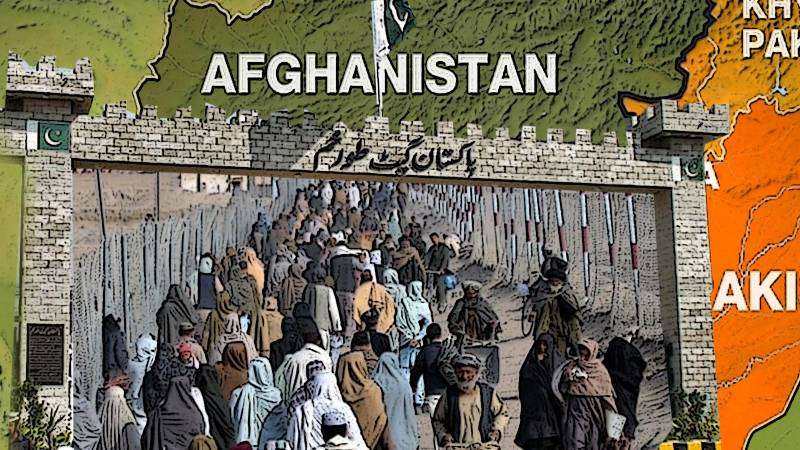Pakistan’s Refugee Burden: Vilified for Hospitality, Abandoned by the World
For too long, Pakistan has shouldered the immense burden of hosting millions of Afghan refugees, only to find it vilified and abandoned by the very international community that once lauded its generosity. This editorial aims to dissect the complexities of this issue, exposing the hypocrisy of the West and highlighting the urgent need for a collective solution.
At the heart of the matter lies a staggering figure: 1.7 million undocumented Afghans residing in Pakistan, a testament to the country’s long-standing hospitality in the face of a protracted humanitarian crisis. Yet, it is only now, when Islamabad has finally decided to assert control over its borders that the West has chosen to offer tepid criticism and pronouncements of concern.
West’s Hypocrisy Exposed: Pakistan’s Border Control vs. Selective Empathy
The West conveniently ignores the stark parallels between its border policies and Pakistan’s current stance. British Prime Minister Rishi Sunak’s condemnation of Channel crossings, the White House’s proposed border expulsion laws, and Pakistan’s desire to regulate its borders – all stem from the same fundamental desire: national security and territorial integrity. Why then, is Pakistan’s stance deemed controversial while the West’s actions are met with understanding?
Caretaker Prime Minister Anwarul Haq Kakar’s recent op-ed in a British publication serves as a stark reminder of Pakistan’s frustration with the international community’s selective empathy. For decades, Pakistan has faithfully upheld its responsibility towards Afghan refugees, even as the international community failed to fulfill its pledge of financial and logistical support.
The abysmal 15% funding rate for the $613 million regional refugee response plan speaks volumes about the West’s commitment to sharing the burden.
The answer lies in a complex web of geopolitical considerations and historical baggage. Pakistan, the UK, and the US may belong to different “prestige clubs,” but the fundamental principles of border security and national interest remain universal.
The hypocrisy becomes even more glaring when one considers the nexus between certain refugee groups and criminal activities like terrorism, smuggling, and Benami transactions. Since 2021, at least 16 Afghan nationals have been implicated in terror attacks in Pakistan, while cross-border smuggling rings are estimated to cost the country over $3 billion annually.
Hospitality to Cooperation: Building a Regional Response to the Refugee Challenge
These are not mere statistics; they represent a tangible threat to Pakistan’s stability and security. Islamabad’s calls for international attention to the nefarious activities of the Taliban regime, particularly its alleged support for terror outfits like the TTP, have largely fallen on deaf ears.
The chilling revelations of TTP utilizing American-supplied weapons from Kabul paint a disturbing picture of regional collusion and disregard for Pakistan’s security concerns.
While Prime Minister Kakar’s reaffirmation of Pakistan’s commitment to building a “safer, more peaceful, and prosperous Pakistan” deserves applause, his case would be further strengthened by concrete evidence of the links between illegal Afghan migrants and criminal networks. Islamabad needs to present irrefutable proof of how these individuals fuel Benami transactions and act as recruitment grounds for terror groups like the TTP.
The Afghan refugee crisis is not a Pakistani problem; it is a regional and international one. Pakistan has borne the brunt of this crisis for far too long, and it is high time the international community acknowledged its sacrifices and stepped up to share the burden.
Selective empathy and double standards will not solve this complex issue. Instead, genuine cooperation, based on mutual respect and understanding of Pakistan’s legitimate security concerns, is the only way forward. Only then can we hope to build a stable and prosperous future for both Pakistan and Afghanistan?


